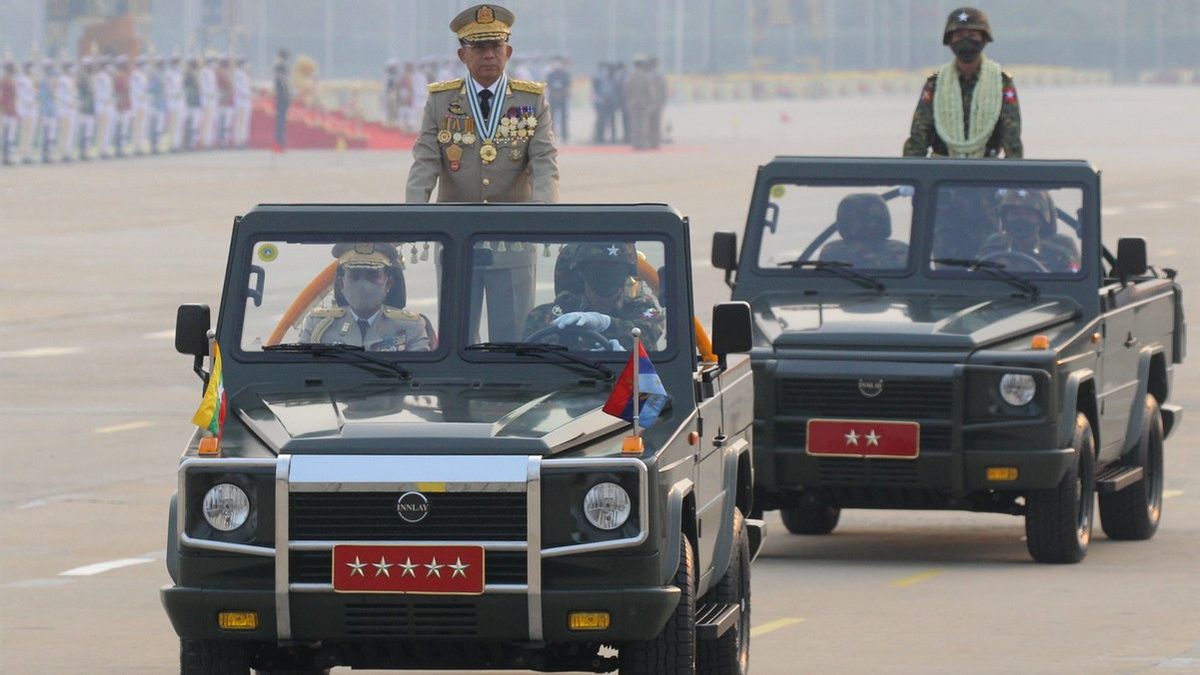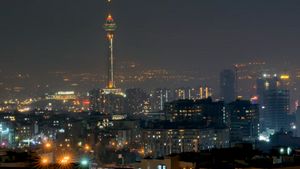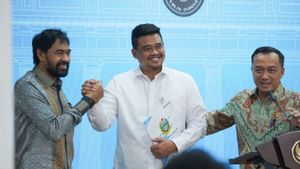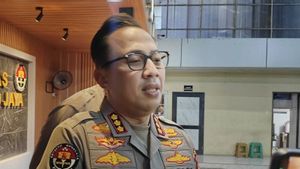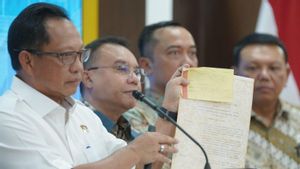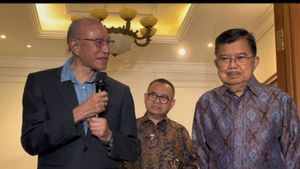JAKARTA - The Government of National Unity (NUG) of Myanmar has complained about the planned presence of representatives of the Myanmar military regime, in a hearing at the UN high court in The Hague, Netherlands next week, giving international recognition without legal standing.
The hearing will discuss jurisdictional disputes arising from the Gambia's claim, which was filed in 2019 at the International Court of Justice (ICJ), accusing Myanmar of genocide against its minority Muslim Rohingya population.
Prior to the fall of Aung San Suu Kyi's civilian government in a military coup a year ago, she denied accusations of genocide against the military brought by Gambia, which is backed by the 57-nation Organization for Islamic Cooperation (OIC).
Now, representatives of the junta are expected to attend a virtual hearing at the ICJ, which handles disputes between countries, to discuss the initial objections to jurisdiction raised by Myanmar in January 2021. The trial will begin on Monday.
A number of UN agencies have invited junta representatives to the meeting, although Myanmar's military does not have an official position at UN headquarters in New York. The UN General Assembly's Credentials Committee decided in December to delay a decision on the matter.
Later, the credentials committee has allowed Kyaw Moe Tun, the representative of the government ousted in a February 1, 2021 military coup, to remain in office.

Members of the Government of National Unity (NUG), a parallel government including the lawmaker ousted in exile, said earlier this week Kyaw Moe Tun, who was also appointed to represent him in The Hague, was "the only person authorized to engage with the court on behalf of the court." Burma".
"The junta is not the government of Myanmar," said Christopher Sidoti, a human rights lawyer and former member of the UN fact-finding mission in Myanmar.
"The junta does not have the authority or ability to act as Myanmar's government at home or abroad. But by appearing before the ICJ, that is what it will try to do," Sidoti told Reuters.
"The Myanmar people clearly reject the junta, make it clear that the military does not represent them," said Tun Khin, president of the British Burmese Rohingya Organization, alluding to a series of popular protests against military rule.
"All the international community, including the ICJ, should hear this, and not give any legitimacy to the junta," he said.
The ICJ has not yet considered the merits of the genocide charge. Suu Kyi in December 2019 asked the World Court to dismiss Gambia's claims, denying genocide and saying the ICJ should have no jurisdiction. However, the NUG said earlier this month it accepted the ICJ's jurisdiction to hear the allegations.

Separately, a source at The Hague court told Reuters that the registered representatives for Myanmar were junta-appointed Ko Ko Hlaing, its envoy for international coordination, and Myanmar Union Attorney General Thida Oo, who will head an eight-member legal team for the trial.
The two officials, who are on the US Treasury Department's sanctions list, will replace Suu Kyi, who after the coup was sentenced to six years in prison and faces a combined maximum sentence of 150 years in a dozen other cases brought by the military.
The ICJ declined to answer Reuters questions about how to decide who can be accredited as a country representative in cases where the government of a country is contested, referring to its handbook. The rules only state that communications about representatives come from the ministry of foreign affairs or embassies.
"The junta's presence at the trial does not legitimize or validate the military's representation before the United Nations," said Shayna Bauchner, a researcher for New York-based Human Rights Watch.
He said the more important focus should be on justice being served for the atrocities against the Rohingya in Myanmar.
To note, more than 730,000 Rohingya fled Myanmar after a military-led crackdown in 2017 and were forced into squalid camps across the border in Bangladesh. UN investigators concluded that the military campaign had been carried out with "genocidal intent".
The Myanmar Coup. VOI editors continue to unify the political situation in one of the ASEAN member countries. Civilian casualties continued to fall. Readers can follow news about the Myanmar military coup by tapping this link.
The English, Chinese, Japanese, Arabic, and French versions are automatically generated by the AI. So there may still be inaccuracies in translating, please always see Indonesian as our main language. (system supported by DigitalSiber.id)
